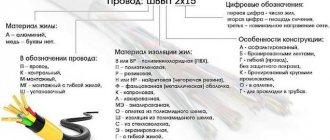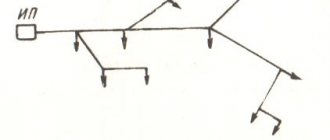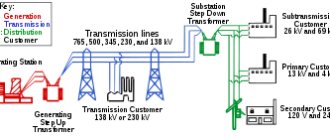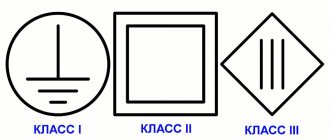Compiling an application
This document does not have a strictly established form, but it must contain all the necessary information. When submitting an application from an individual for a connection with a power of no more than 15 kW, the document must display the following:
- Personal data of the applicant, which includes last name, first name and patronymic.
- It is necessary to reflect passport data - series, number, date and place of issue.
- Indicate place of residence.
- It is necessary to list the equipment that needs to be supplied with power, and also indicate the location.
- Timeframes for launching energy-consuming facilities.
- You need to report the maximum power value for each.
Technological connection. Part 1. Boring
I really love the topic of technological connection. Issues of technical connection are complicated not only by the lack of uniformity in the legal regulation of technical connection depending on the resource being connected (heat, water, gas, electricity). The difficulty also lies in the technical aspects of the process itself.
This is the first part of notes on the topic: a little divorced from practice. Let's just say, introductory!
Any new construction involves connecting the facility under construction to public utility systems, namely connection to heat supply, water supply and energy supply systems. Despite the existing regulatory framework regulating these issues, it is worth noting that there are a number of problems that the applicant faces when carrying out technological connection.
The author considers the main problems in legal regulation in the Russian Federation in this area:
— lack of codified unified rules for regulating issues of technological connection (depending on the regulated legal relationship for connection, depending on the connected network for the consumption of a particular resource (water, heat, etc.) in the Russian Federation there are various Rules, the content of which and legal regulation are different;
— lack of proper regulation of terminology in these Rules, which indicates some legal uncertainty in matters of legal regulation;
— instability in determining the legal nature of the technological connection agreement;
— lack of proper and clear regulation in matters of the emergence of ownership rights to created network facilities during the implementation of a technological connection agreement;
— lack of developed mechanisms for redistributing power before the stage of technological connection;
— non-transparent pricing mechanisms when carrying out technological connection at an individual tariff;
— mandatory state regulation of technological connection issues, which allows insufficient freedom of contractual regulation of the relationship between the applicant and the contractor under the threat of applying administrative coercive measures to the network organization.
TERMINOLOGY AND LEGAL NATURE
Currently, in the legislation of the Russian Federation there is no clear and comprehensive definition of technological connection to infrastructure networks, and, therefore, there is no single term for the technological connection agreement and the process of technological connection.
The first significant issue in this area is the fact of the difference between the concepts of “accession” and “connection”.
Some authors differentiate the concepts of accession and connection as follows.
For example, A.V. Smagin points out the following. “The legal regulation of activities for the technological connection of power receiving devices and electric power facilities to power grid facilities must be distinguished from the legal regulation of activities for connecting capital construction facilities to engineering and technical support networks. Connection activities, in contrast to technological connection activities, are regulated by the Town Planning Code of the Russian Federation dated December 29, 2004 N 190-FZ" .
Based on the content of Part 10.1 of Article 48 of the Town Planning Code of the Russian Federation, it can be stated that most of the requirements of the Code regulating connection activities do not apply to the technological connection of capital construction projects to electrical networks. At the same time, this Code contains a direct reference in relation to the legal regulation of technological connection to the legislation of the Russian Federation on the electric power industry.
Further, the author in this article points out that despite the similarity of terminology, the legal regulation of “accession” and “connection” differs. At the same time, the author emphasizes that the term “connection” is applicable to the electric power industry and legal regulation in this area is determined by the historically established specifics of technological connection in the electric power industry.
As arguments for different legal regulation of “annexation” and “connection”, the functional role is given, namely, as noted by S.M. Korneev, the energy supply organization not only checks existing technical means, but also supervises the design and construction of relevant networks and installations and gives permission for their connection to its network[ii]. On the other hand, as noted in the new judicial practice, the network organization is entrusted with the obligation to carry out not only the actual measures for the technological connection of power receiving devices to electrical networks, but also a number of preparatory measures, including strengthening the existing network in connection with the connection of new capacities (construction new power lines, substations, increasing the cross-section of wires and cables, replacing or increasing the capacity of transformers, expanding switchgears, modernizing equipment, reconstructing electrical grid facilities, installing voltage regulation devices to ensure the reliability and quality of electrical energy)[iii].
As stated in the decision of the Supreme Arbitration Court of the Russian Federation (hereinafter referred to as the Supreme Arbitration Court of the Russian Federation) dated June 28, 2012 N VAS-4355/12, the scope of Article 48 of the Urban Planning Code of the Russian Federation and Section 2 of Rules No. 861, which regulates the procedure for concluding a technological connection agreement, are different. Rules No. 861 were adopted by the Government of the Russian Federation not in compliance with the norms of the Town Planning Code of the Russian Federation.
The question of the identity of the concept of technological connection and technological connection is open.
Some Rules identify these concepts[iv], and some separate these concepts. In particular, Rule No. 787 distinguishes between the concepts of connection point and connection point. While in other Rules these are equivalent concepts[v].
In accordance with clause 2 of the Decree of the Government of the Russian Federation dated February 13, 2006 N 83 “On approval of the Rules for determining and providing technical conditions for connecting a capital construction project to engineering support networks and the Rules for connecting a capital construction project to engineering support networks” (hereinafter - Resolution No. 83) connecting a capital construction project to engineering support networks” is a process that makes it possible to connect capital construction projects under construction (reconstruction) to engineering support networks, as well as to resource production equipment.
At the same time, tracing the changes to Rule No. 83, starting from the moment of their adoption, it should be noted that the legislator himself experienced some uncertainty regarding the issue of determining the extension of these Rules to connection to certain networks (in the original edition of 2006, the Rules regulated relations in the field connections to the following resources: cold and hot water, network gas, electric and thermal energy used to provide services for electricity, heat, gas and water supply; further, as amended in 2010, electric energy disappeared from the scope of regulation; as amended in 2014 gas is excluded, heat and hot water are removed from the current version).
At the same time, references to the Town Planning Code of the Russian Federation, which regulates issues of technological connection and in development of the provisions of which the specified Rules were adopted, are available in the Heat Supply Law.
These changes to Rule 83 are partly due to the progressive adoption of the Rules on a resource-by-resource basis. At the same time, the question of the need to adopt such Rules for each resource without developing uniform Rules indicating the specifics for each resource does not have a meaningful answer.
Each industry Connectivity Rule contains its own definitions.
connection (technological connection) of a capital construction facility to the gas distribution network" - a set of organizational and technical actions, including gas tapping and start-up, enabling the connected capital construction facility to use gas coming from the gas distribution network (Resolution of the Government of the Russian Federation dated December 30, 2013 N 1314 "On approval of the Rules for connection (technological connection) of capital construction projects to gas distribution networks, as well as on amendments and invalidation of certain acts of the Government of the Russian Federation”, hereinafter referred to as Rules No. 1314)
documents on technological connection - documents drawn up (drawn up) in the process of technological connection (after completion of the technological connection) of energy receiving devices (electricity facilities) to power grid facilities, including technical conditions, an act on the implementation of technological connection, an act of delimitation of the balance sheet of electrical networks, act of delimitation of operational responsibilities of the parties (Resolution of the Government of the Russian Federation dated December 27, 2004 N 861 “On approval of the Rules for non-discriminatory access to services for the transmission of electrical energy and the provision of these services, the Rules for non-discriminatory access to services for operational dispatch control in the electric power industry and the provision of these services, Rules non-discriminatory access to the services of the administrator of the trading system of the wholesale market and the provision of these services and the Rules for the technological connection of power receiving devices of electrical energy consumers, electrical energy production facilities, as well as electrical grid facilities belonging to network organizations and other persons to electrical networks" (hereinafter referred to as the Rules No. 861).
“connection” is a set of organizational and technical actions that enable the connected object, after connection (technological connection) to the heat supply system, to consume thermal energy from this heat supply system, ensure the transfer of thermal energy through adjacent heating networks, or supply thermal energy produced at a thermal energy source, into the heat supply system Resolution of the Government of the Russian Federation dated 07/05/2018 N 787 “On connection (technological connection) to heat supply systems, non-discriminatory access to services in the field of heat supply, amendment and invalidation of certain acts of the Government of the Russian Federation” (hereinafter referred to as Rules No. 787).
Analyzing all the above definitions, we can conclude that technological connection is a set of organizational and technical measures that results in connecting the applicant to the resource supply system.
Analyzing all the Rules, we can identify approximately the same stages of concluding and executing a technological connection agreement:
1. Submission of an application for technological connection by an individual or legal entity for technological connection of new facilities or an increase in the volume of maximum connected capacity.
2. Conclusion of an agreement for technological connection between the consumer and the electric grid organization.
3. Implementation by the parties of the measures provided for in the technological connection agreement.
4. Obtaining permission from the federal state energy supervision body for admission to operation of facilities
5. The actual connection of the applicant’s facilities to the electrical networks, carried out by the network organization (a set of organizational and technical measures that ensure the physical connection of the electrical grid facilities and the applicant’s facilities).
6. Actual reception (supply) of voltage and power by turning on the switching device.
7. Signing by the parties of an act on the implementation of technological connection, as well as acts on delimitation of the boundaries of balance sheet ownership, operational responsibility[vi]
One of the key features of all legal relations of technological connection is the high role of the state as a regulator of these legal relations.
In general, there are two approaches to the subject of state regulation of activities related to technological connection. One approach or another prevails in different countries. Studying the experience of foreign countries will allow us to draw conclusions about the importance and benefits of government regulation, or, on the contrary, about the destructiveness of unnecessary imperative intervention.
The first approach is that ensuring technological connection is a mandatory function of the corresponding network company. The implementation of technological connection does not require the applicant to perform any actions. Moreover, in some countries, such accession is free of charge . Today, such a model of connecting to power grids is typical, for example, for the Japanese market.
In accordance with the second approach, technological connection is considered as an obligation of the applicant. In Kazakhstan, connection to electrical networks is carried out by the applicant independently with the permission of the authorized organization[vii].
The Russian Federation is following the path of international experience, according to which the activities of technological connection, generation and transfer of resources are subject to division. In particular, the same model for dividing activities exists in many countries: Germany, Sweden.
At the same time, in the Russian Federation the role of the state as a regulator is extremely high. Considering that merger activities in our country are carried out by companies that are subject to regulation by antimonopoly legislation, from this point of view such intervention seems justified. However, the presence of restrictions on any deviation from the developed Rules, even in the case where such a deviation does not put the applicant at a disadvantage, should be considered as an extremely negative relic of the pre-existing economy.
An important problem in the legal regulation of technological connection is the view on the legal nature of the technological connection agreement.
There are three points of view on the question of the legal nature of the technological connection agreement:
The first point of view, which prevailed earlier: a technological connection agreement is an agreement not named by civil law and regulated by special industry legislation.
This position experienced its heyday after the legal position was stated by the Presidium of the Supreme Arbitration Court of the Russian Federation. The Presidium of the Supreme Arbitration Court of the Russian Federation, in its resolution of July 10, 2012 No. 2551/12 in case No. A56-66569/2010, provides a position according to which a technological connection agreement does not relate to either a contract or a contract for the provision of paid services, and is also not mixed agreement, but should be considered as an agreement not named in the Civil Code of the Russian Federation. Since the electric power legislation regulates the procedure for technological connection and defines all the essential terms of the technological connection agreement, in the opinion of the Supreme Arbitration Court of the Russian Federation, this agreement, by its legal nature, is a technological connection agreement.
In accordance with the second position, a technological connection agreement is an agreement for the provision of services.
And the third position is that the contract is a mixed type of contract, including elements of both a contract for the provision of services and a work contract.
For a long time, the question of the legal nature of this agreement was controversial.
Considering the subject of the technological connection agreement in the form of the implementation of a number of activities, one of the points of view was that technological connection should be considered as work, since it is the connection process that matters.
This opinion, in particular, is shared by O.A. Gorodov, pointing out that a number of indirect features of a technological connection agreement allow us to consider it as a contract[viii].
Highlighting a number of activities in technological connection, in terms of actions to carry out work on technological connection, a number of authors also see signs of a contract, in terms of technical inspection (inspection) of connected power receiving devices - a contract for the provision of paid services.[ix]
In the Ruling of the Supreme Court of the Russian Federation dated December 25, 2017 N 305-ES17-11195 in case N A40-205546/2016, the court concluded that the technological connection agreement, in all its essential terms, corresponds to the contract for the provision of paid services; In addition to the special rules, the provisions of Chapter 39 of the Civil Code of the Russian Federation, as well as general provisions on obligations and the contract (Section III of the Civil Code of the Russian Federation) apply to the legal relations of the parties under a technological connection agreement.
However, such a narrow view of the nature of a technological connection agreement, as an agreement for the provision of services, seems not entirely complete.
It is obvious that in the above Definition, when concluding that the technological connection agreement contained signs of a service agreement, the RF Supreme Court analyzed the provisions of the legal institution of technological connection through the prism of the applicant’s ability to unilaterally refuse the agreement at any time with the fulfillment of the obligation to compensate the Contractor’s costs.
This conclusion is confirmed not only by an analysis of the terms of the technological connection agreement, but also by other positions of the RF Armed Forces, set out in its judicial acts, which, without contradicting the Determination of the RF Armed Forces of December 25, 2017, indicate that the nature of the technological connection agreement is, among other things, contractor
Thus, in Determination No. 304-ES16-10628 of July 19, 2016, the Supreme Court of the Russian Federation points out the mixed nature of the contract, containing elements of both a contract and a contract for the provision of services.
It should be noted that by taking such a position on the legal nature of the technological connection agreement, the Supreme Court of the Russian Federation thereby follows a different path than the Supreme Arbitration Court of the Russian Federation, which, in the landmark Resolution of the Presidium of the Supreme Arbitration Court of the Russian Federation No. 2551/12, defined the legal nature of the technological connection agreement as agreement subject to specialized rules. With its Determinations, the Supreme Arbitration Court of the Russian Federation crossed out the legal position of the Presidium of the Supreme Arbitration Court of the Russian Federation, which, with reference to the special legal nature of the technological connection agreement, denied the possibility of unilateral refusal other than on the grounds set out in certain connection rules.
At the moment, the highest court allows you to refuse the contract, subject to compensation for the costs of the network organization.
The position of foreign civil law experts on the nature of the technological connection agreement is interesting.
As noted by S.A. Svirkov, “in the German doctrine it is believed that “the obligation to implement technological connection is an expression of the social responsibility of property.[x]
From this point of view, a technological connection agreement is considered as the obligation of the applicant, as the owner of the object of right, to connect the latter to the networks in order to consume the resource.
Analyzing all positions on the technological connection agreement, taking into account its legal nature, the goals of the parties when concluding it, the author is inclined to believe that the technological connection agreement is an agreement of a mixed nature and contains elements of a service agreement and a work contract, at the same time, it is not deprived of legal institutions that are subject to regulation by special norms .
A. V. Smagin. The agreement on the implementation of technological connection as an independent transaction in the electric power industry: current problems / "Energy and Law", 2013, No. 2/
[ii] Korneev S.M. Legal nature of the energy supply agreement // Law. 1995. N 6.
[iii] See: decision of the Supreme Arbitration Court of the Russian Federation of August 12, 2011 in case No. VAS-9742/11
[iv] See, for example, Decree of the Government of the Russian Federation of December 30, 2013 N 1314 “On approval of the Rules for connecting (technological connection) of capital construction projects to gas distribution networks, as well as on amendments and invalidation of certain acts of the Government of the Russian Federation”
[v] See, for example, Decree of the Government of the Russian Federation dated July 29, 2013 N 642 “On approval of the Rules for hot water supply and amendments to the Decree of the Government of the Russian Federation dated February 13, 2006 N 83”
[vi] Highlighted: Repetyuk S.V., Fain B.I., Mozgovaya O.O., Temnaya O.V. Comparative analysis of the practice of technological connection of consumers to electric networks in Russia and foreign countries
[vii] Semenovich Kristina Sergeevna. Agreement for technological connection to electrical networks. dissertation, page 24
[viii] Gorodov O.A. Agreements in the field of electric power industry: Scientific and practical manual. M.: Wolters Kluwer, 2007.
[ix] “Commentary to the Federal Law of March 26, 2003 N 35-FZ “On Electric Power Industry” (article-by-article) (Matiyashchuk S.V.) (“Yustitsinform”, 2012)
[x] Svirkov S.A. The main problems of civil regulation of energy circulation: monograph. M.: Statute, 2013. 479 pp..
How to connect electricity to your home: deadlines and delays
Cable wiring diagram in the metering panel
Implementation of MOESK specifications for connecting 15 kW includes such basic activities as
- installation and connection of the metering board,
- installation of a meter and grounding device,
- installation of input circuit breakers and other electrical appliances, as well as
- cable supply.
The standard time frame for issuing technical specifications by a network organization, in accordance with Russian Federation Decree No. 861, is 30 days.
The distance from the object that is connected to the power grid is a factor that directly affects not only the price, but also the timing of electrification of a house or site.
If the power supply company's lines are located no more than 300 m (city) and 500 m (rural) from the boundaries of the applicant's site, the period for completing such work is six months.
Failure to meet connection deadlines due to the fault of the servicing power line company is a rare but possible option. In this case, you should write a claim and file a statement of claim in court.











